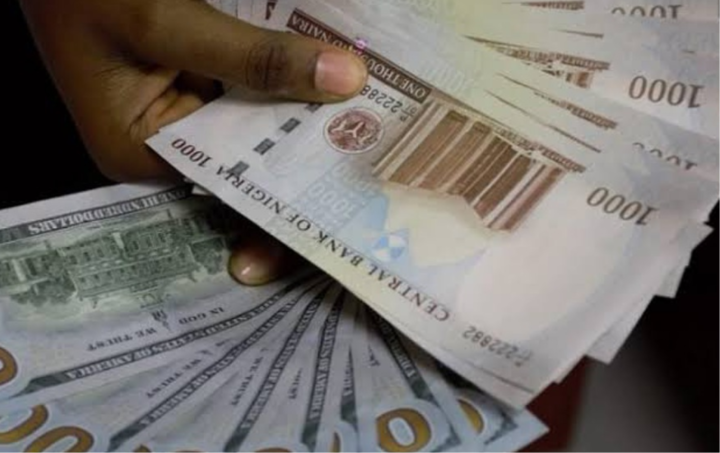The Naira’s decline continued on Tuesday, with a closing rate of N881.88 per dollar in the official market and N1157 per dollar in the parallel market, marking a 7.63% depreciation. This represents a substantial loss of N67.28 or a 7.63% decline compared to the previous day’s closing rate of N814.60.
The intraday high reached was N1159/$1, while the intraday low was N701/$1, reflecting a significant spread of N458/$1. Forex turnover at the official Nigerian Foreign Exchange Market (NAFEM) window amounted to $118.06 million at the close of trading, indicating a 17.99% increase from the previous day.
In the parallel forex market, where unofficial trading occurs, the naira also weakened, depreciating by 0.17%, with an exchange rate of N1157/$1. Peer-to-peer traders quoted around N1160.18/$1.

Amidst the ongoing depreciation of the Naira in both the official and unofficial forex markets, financial experts are urging the Central Bank of Nigeria (CBN) to de-dollarize the economy by declaring local transactions in US dollars as illegal.
Dr. Biodun Adedipe, the founder and chief consultant of InfoStride News, emphasized the need for the CBN to intervene in the situation. He suggested that the CBN should prohibit government agencies from charging local operators and entities in US dollars. Adedipe proposed that the sale of crude oil to local refineries should be conducted in Naira rather than in US dollars.
Adedipe articulated his recommendations, stating, “CBN should deal transparently with participating banks at the I&E Window. De-dollarize the economy by declaring as illegal any local transactions in US dollars, such as the sale of assets, rent/leases, and other services, including school fees and medical bills. Ensure that government agencies stop charging local operators and entities in US dollars, which is quite common in the maritime sector.”
Furthermore, he emphasized the importance of engaging directly with bank CEOs, suggesting that President Bola Tinubu should spearhead such discussions to generate ideas. Adedipe proposed using moral suasion to enlist their support for market reforms. He also called for a realistic acknowledgment of the economic challenges, stating that unified exchange rates, not different from floating the Naira, are a poor policy choice for a structurally defective and weak economy like Nigeria’s.
In conclusion, the escalating depreciation of the Naira prompts calls for decisive measures, with experts like Dr. Biodun Adedipe advocating for de-dollarization and strategic reforms to address the root causes of the currency’s decline.
Support InfoStride News' Credible Journalism: Only credible journalism can guarantee a fair, accountable and transparent society, including democracy and government. It involves a lot of efforts and money. We need your support. Click here to Donate
